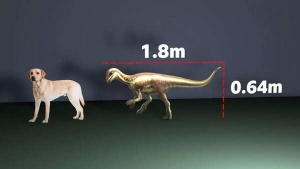In today's fast-paced world, mental acuity is more crucial than ever. While physical workouts receive significant attention, brain exercises are often overlooked. Just as lifting weights strengthens muscles, engaging in mental workouts sharpens focus and boosts memory. Incorporating regular brain exercises is essential for maintaining and improving cognitive functions. Mental stimulation enhances concentration, improves memory retention, and can even help prevent age-related cognitive decline. Here are three science-backed brain exercises to enhance focus and memory.
The importance of meditation for both body and mind is frequently underestimated. Meditation involves focusing the mind and staying present. This practice strengthens the prefrontal cortex and hippocampus, brain regions crucial for attention and memory. Regular meditation can improve attention span and reduce stress, which supports better memory. Some studies suggest that meditation may benefit the brain by affecting its structure or functionality; however, more research is needed.
Dedicate just 10-20 minutes daily to meditation. Find a quiet space and focus on your breath or a mantra. When your mind wanders, gently bring your focus back. Beginners can utilize apps to guide them through the process.

Games and puzzles that challenge the brain are excellent tools to improve memory and boost focus. Puzzles that require problem-solving skills strengthen neural connections. Activities like Sudoku, crossword puzzles, and memory card games are linked to short-term memory enhancement and cognitive flexibility. These games train your brain to process and recall information more efficiently.
A 2021 study revealed that brain training games can aid in managing age-related cognitive decline in older adults. Set aside time each day, whether morning or evening, for a crossword puzzle, Sudoku, or a memory card game. Online platforms and puzzle books can also be valuable resources.

The brain thrives on novelty. Learning something new, such as a language or a musical instrument, challenges the brain to process and store new information, creating new neural pathways. A 2014 study involving older adults discovered that learning a new and cognitively demanding skill, like quilting or photography, significantly improved their memory.
Similarly, a 2019 review found that bilingualism, the ability to speak two languages, significantly increases and strengthens the connectivity between different areas of the brain. This can delay and decrease the risk of Alzheimer's disease and other forms of dementia. Consider utilizing language training apps, enrolling in a course, or learning an instrument. Consistent practice, even for just 15-30 minutes daily, can yield significant results.

Newer articles
Older articles
 Hetmyer's Heroics: Orcas Stun MI New York with Last-Ball Six in Record-Breaking MLC Chase
Hetmyer's Heroics: Orcas Stun MI New York with Last-Ball Six in Record-Breaking MLC Chase
 Android Users Face Critical Security Risks: Update Your Devices Now, Warns Government Agency
Android Users Face Critical Security Risks: Update Your Devices Now, Warns Government Agency
 Greg Chappell Hails Rishabh Pant's "Revolutionary" Batting, Likens Him to Gilchrist
Greg Chappell Hails Rishabh Pant's "Revolutionary" Batting, Likens Him to Gilchrist
 Dog-Sized Dinosaur Fossil Unearths New Insights into Prehistoric Life Alongside Giants
Dog-Sized Dinosaur Fossil Unearths New Insights into Prehistoric Life Alongside Giants
 West Indies Captain Chase Slams Umpiring After Test Loss, Demands Accountability
West Indies Captain Chase Slams Umpiring After Test Loss, Demands Accountability
 IRCTC's AI Chatbot, AskDisha 2.0, Streamlines Train Ticket Booking, Refunds & Information
IRCTC's AI Chatbot, AskDisha 2.0, Streamlines Train Ticket Booking, Refunds & Information
 Freestyle Chess India Event Scrapped Due to Sponsorship Issues; Carlsen Absence Confirmed
Freestyle Chess India Event Scrapped Due to Sponsorship Issues; Carlsen Absence Confirmed
 Moto G54 Gets Significant Price Drop in India: Check Out the New Affordable Price Tag
Moto G54 Gets Significant Price Drop in India: Check Out the New Affordable Price Tag
 New Zealand Cricket Announces Packed 2025-26 Home Schedule Featuring Australia, England, West Indies & South Africa
New Zealand Cricket Announces Packed 2025-26 Home Schedule Featuring Australia, England, West Indies & South Africa
 Converting JPG to PDF: A Comprehensive Guide for Preserving Image Quality and Ensuring Accessibility
Converting JPG to PDF: A Comprehensive Guide for Preserving Image Quality and Ensuring Accessibility